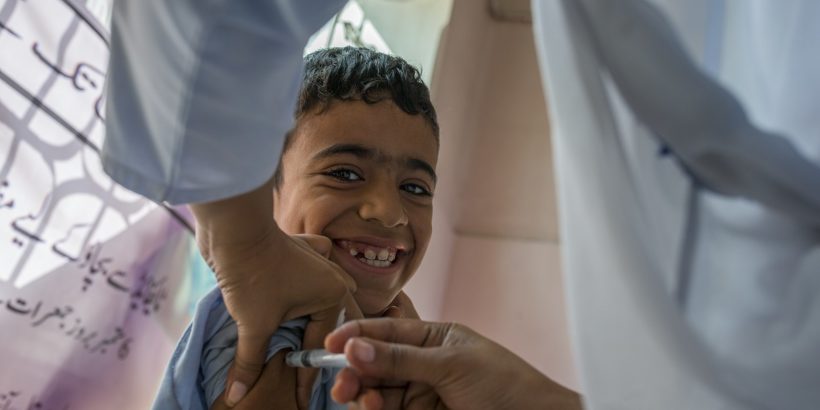Recently, the World Health Organization Global Advisory Committee on Vaccine Safety (GACVS) reviewed newly available safety data on Typbar TCV®, which is currently the only licensed, prequalified, and recommended typhoid conjugate vaccine (TCV) available internationally and for children as young as 6 months of age. The new data were comprised of preliminary safety findings from three ongoing effectiveness studies conducted by the Typhoid Vaccine Acceleration Consortium (TyVAC) in Malawi, Bangladesh, and Nepal, as well as data from early public sector use of the vaccine in India and Pakistan, and from additional private sector use in India. Following presentation of the data in late 2018, GACVS reiterated that the vaccine continues to be safe.
The update from GACVS is welcome and reassuring news, and enhances what we already know about the TCV: it is a safe vaccine for use in children as young as 6 months of age.
Typhoid, while largely eliminated from high-income countries, remains a persistent global health challenge in many low- and middle-income countries. The burden is concentrated among children younger than 15 years of age. While treatable with antibiotics, we continue to see cases that are resistant to many of the available drugs to treat typhoid, and that resistance is spreading. Multidrug- and extensively drug-resistant strains are becoming more common, circulating in endemic areas and causing outbreaks across geographical regions. These strains are making typhoid harder to treat, which may turn back the clock on decades of progress in reducing typhoid mortality.
Additionally, rapid urbanization, and the resulting densely populated cities, are a growing concern for typhoid control. As people continue to move to urban centers, already weak water and sanitation systems are placed under increasing pressures to serve these growing populations. In many communities, water and sanitation infrastructure cannot scale up fast enough to meet this emergent demand. Because typhoid is transmitted via contaminated food and water, when these systems fail, typhoid risk increases in these communities.
Increasing drug resistance and urbanization have raised the urgency and focus on typhoid prevention with proven interventions, including TCVs and water, sanitation, and hygiene improvements. We need to combat typhoid with the tools we have available to us now, and one of the most powerful is TCVs. TCVs have the potential to drastically decrease the burden of typhoid, protecting those most at risk before they ever get sick. Through vaccination, we can start tackling the challenges posed by urbanization and drug-resistant typhoid head on. Most importantly, we can prevent the suffering caused by this disease and ultimately save lives. The new data we are generating on TCV safety and efficacy are important but we don’t need to wait―and we can’t afford to wait―to make decisions on TCV introduction when the vaccine can make an impact now. The GACVS analysis supports what we already know – that TCV is safe and can be used by countries now.
Photo: PATH/Asim Hafeez



